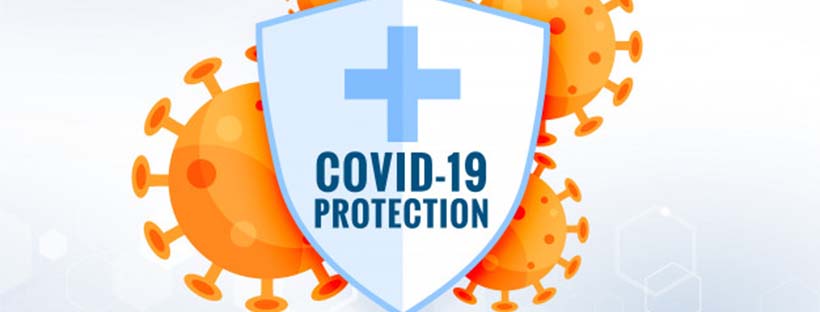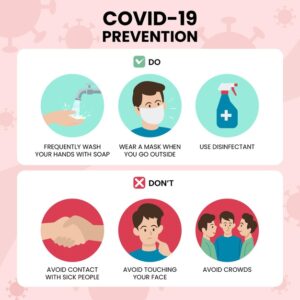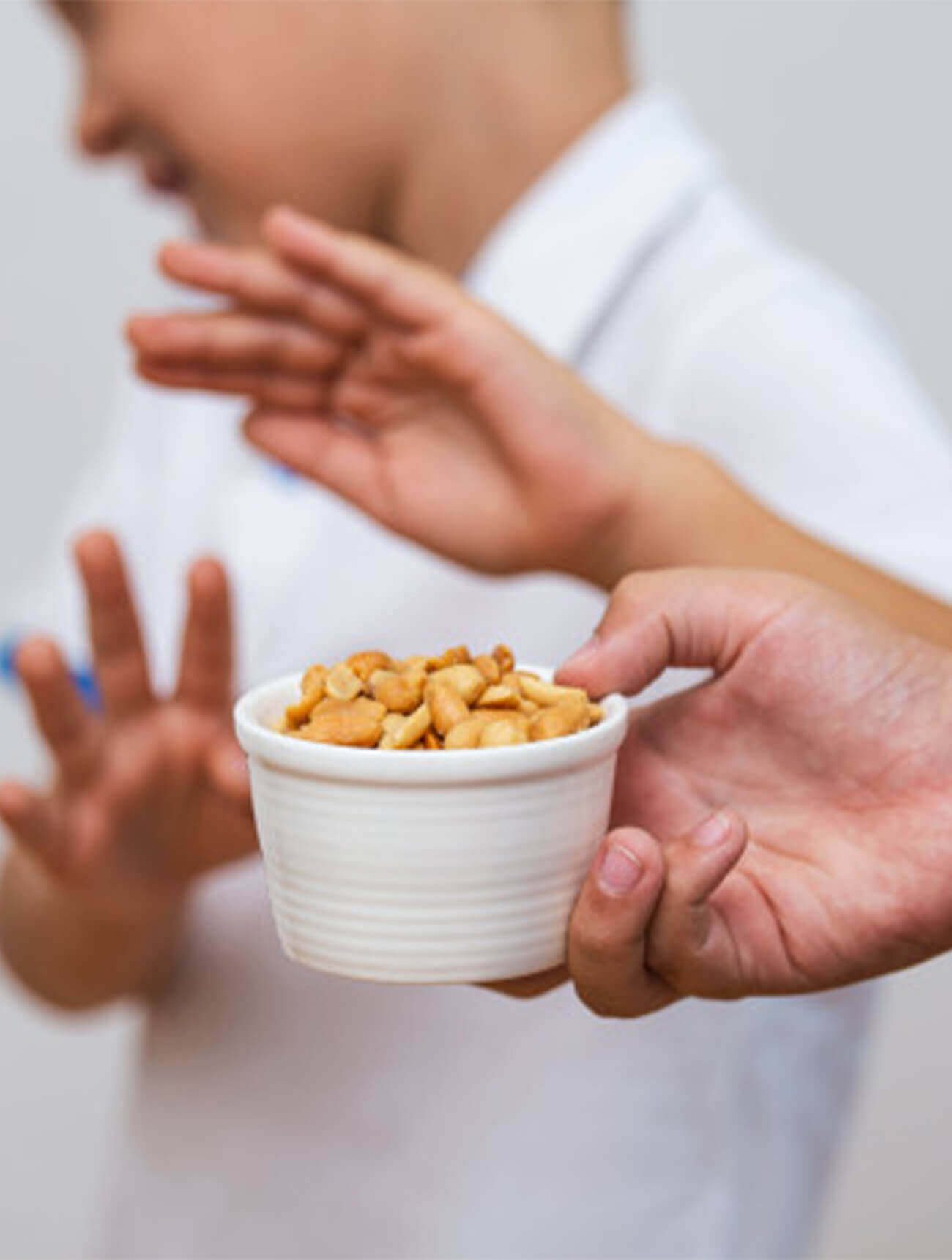How to take care of Covid-19 at home? Home care Guidelines, Treatment, Symptoms and Precautions
 25618
25618

super easy
With Covid-19 wreaking havoc all over the world and especially in India these days, it’s only natural for people to seek maximum awareness about all that is going on. Covid-19 cases in India have spiked suddenly, and a lot of people are prone to losing their lives. Well, in times like these, we must stay positive, not to spread rumors and play our part in curbing the situation.
We have come up with a proper guide to provide complete information on Covid-19 like causes of coronavirus/ Covid-19, Covid-19 symptoms, prevention of Covid-19, suggestive action plan, and treatment for Coronavirus.
How to take care of Covid-19 at home?
According to WHO, more than 80 percent of affected patients don’t need hospitalization, and they can be treated well under home quarantine with guided actions and prescriptions from their physicians. So, apart from following your Doctor, there are a few things you can do at home to ensure a speedy recovery.
- Get an ample amount of sleep and rest. A good 7-8 hours of sleep is advisable.
- Try getting at least 15-20 minutes of the morning sun.
- Avoid eating cold foods. Always consume hot, cooked food.
- Drink plenty of fluids, especially purified water to keep your throat moist and to help clear your lungs.
- Consumer hydrating and Vitamin C-rich food products. Continue with multivitamins and Vitamin-rich foods.
- As the pH of Coronavirus ranges from 5.5 to 8.5, it would be helpful we consume alkaline foods.
- Please ensure cross ventilation and the inlet of fresh air so that the contaminated air isn’t stuck at the same place, causing more infections. Keep windows open or use AC with fresh air mode.
- Take steam from your nose and mouth as much as you can. Usually, the virus stays behind the paranasal sinus in the initial days before moving to the lungs. This, the steam reaches there and kills the virus due to prolonged exposure to high heat. It has been found in studies that at 50°C, this virus becomes disabled i.e., paralyzed. At 60°C, this virus becomes so weak that any human immune system can fight against it. At 70°C this virus dies completely. Steam is both the treatment and the precaution, and it’s without any side effects.
- Since the mild symptoms can be treated at home, one can use some over-the-counter medicines to heal some of the symptoms after asking the physician.
- The sick person should be isolated in the home, and only one caregiver must be allowed near them with no underlying health conditions. One must maintain the highest level of hygiene at all times. Dedicated vessels, washrooms, and clothes should be provided to the infected person. Both the caregiver and the infected should secure a disposable medical mask at all times.
- Try keeping the patient happy and hopeful. Keeping them fine mentally and in high spirits can pave the way for a speedy recovery.
When you take such measures, it becomes easier to combat the virus and treat the infected person, possibly with no further health complications, at home without risking anything.
Action plan when Children get Coronavirus
A lot of parents are ready to go to any extent to protect their child from Covid -19. With the second wave unfurling its wrath, children are more susceptible to contracting the virus because of their weaker immunity and carefree nature. The action plan isn’t very different from that of the adults, but extra care and a few small things would have to be kept in mind.
Covid-19 in children this year is infectious but less hazardous as the virulent UK variant infects the whole family at the same time. But the good thing is that it causes mild disease in children with a lot of Gastrointestinal symptoms like Loose stool, vomiting, pain abdomen, and fewer respiratory complaints, seldom requiring hospitalization (1 in 50 Covid children cases).
- While monitoring the blood oxygen levels, home monitor with adult pulse oximeter for at least 1 minute during sleep; saturation should always be above 94%. Heart/pulse rate should be less than 140 beats per minute (take multiple readings).
- Never administer any drug on your own. Giving them antibiotics or drugs meant for adults in half doses can result in severe side effects and worsening of health.
- Children are usually asymptomatic carriers and can become super spreaders, so it’s advisable to keep them away from immunocompromised relatives, old grandparents to prevent the spread of infection.
- If your child had fallen ill, then after recovery, follow up with your pediatric at 3rd, 4th, 8th, and 12th-week post-illness is required to review any Multi-System Inflammatory Response in the body. This needs early diagnosis and timely management.
- Apart from these steps, avoid separating young children as it can lead to stress, anxiety, and crying, which can reduce the immune response and dislodge more aerosols in the air. Distract them through music and indoor games. Wear masks around them to avoid infection.
Causes of Covid-19 or novel coronavirus
The infection of COVID-19 is caused by coming in contact with the severe acute respiratory syndrome coronavirus 2 (SARS-CoV-2). The spread of the virus is communicable and enters the body through the respiratory medium when someone coughs, sneezes or talks. When the aerosols or droplets from a virus-infected person enters the nose, mouth, or eyes of a person in their proximity, it causes Covid-19. Apart from the aerial transmission or surface transmission, Covid-19 is not known to spread through any other medium such as water, food, animal vectors, feces, etc. The probability of contracting the virus is directly proportional to the quantity of time spent with the infected person and proximity to them. The Coronavirus spreads in clusters, thus various super-spreader events where there is a presence of a large gathering of people, it spreads rapidly. An infected person can further spread the virus well before they show the symptoms. The new coronavirus strains are highly communicable, and hence, they are spreading faster. A lot of new Covid-19 cases are showing evidence for the same. 
Symptoms of Covid-19
Despite maintaining all the precautions, the chances of contracting the virus aren’t entirely eliminated. Therefore, if someone gets infected, the only way to identify and stop the further spread is through the symptoms that the body might show. Coronavirus symptoms emerge between 2-14 days of contraction of the virus. It is possible that a person doesn’t show any symptom at all; that is, he/she is asymptomatic. That’s is why it’s more important to stay cautious. Even those who show the symptoms, the symptoms show gradually. Commonly, once someone is infected, the symptoms are unfolded in 3 stages over two weeks. The duration, symptoms, and effects can vary from person to person.
- 1st phase
Under the first phase, which usually begins from the second or third day of the infection. The initial symptoms usually resemble those of common flu or viral infections. The first symptoms of Covid-19 are:
- Feeling feverish, mild fever that gradually rises
- Sore throat
- Dry cough with increasing severity
- Headache or body pain
- Burning eyes or eye pain
- Vomiting, diarrhea, or other gastrointestinal complications
- Runny or stuffed nose
Serious symptoms might include shortness of breath, blue lips, and confusion.
- 2nd phase
This phase usually lasts between the fourth and the eighth day. Again, this is variable. During this phase, the body starts showing inflammatory reactions.
- Loss of taste and/or smell
- Fatigue with minimal effort
- Chest pain around the rib cage
- Tightening of the chest
- Pain in the lower back (in the kidney area)
- 3rd phase
The third phase, or the healing phase, begins from the ninth day of the infection and can last till the fourteenth day. Stay in contact with your Doctor and take all the necessary treatment. Take ample rest and rush to the hospital if any severe respiratory complications arise. Apart from these, one must understand the difference between fatigue and shortness of breath to better understand the severity of the symptoms. Breathlessness is when the person is sitting – without making any effort – and is out of breath, while fatigue is when the person moves around to do something simple and feels tired.
Also, since the symptoms can seem similar to other infections like the common cold and flu, we must diagnose and differentiate first if we actually have Covid-19 or not. Runny nose and sour throat are less common symptoms of Covid, while fever isn’t usually witnessed in the common cold. Also, in cold and flu, the incubation period is shorter than Covid-19. 
Precautions or Prevention of Covid-19
After the causes of the novel Coronavirus are known, it’s instrumental we delve into the ways by which we can promote the prevention of Coronavirus because prevention is always better than cure. Following are a few crucial steps to keep in mind to curtail the spread of the virus before it ensues its worst form.
- Awareness is the key, and knowledge is power. Stay updated on the latest Covid -19 guidelines and instructions issued by the government and avoid spreading any unreliable or unverified information.
- Wash your hands frequently for twenty seconds and sanitize them regularly with an alcohol-based hand rub. Sanitize all the surfaces and stuff you bring from outside. Properly wash the raw eatables and clothes and let them dry in the sun before storing them.
- Positively AVOID touching your eyes, nose, and mouth during these times as you would facilitate the entry of the virus into your body.
- Maintain social distancing at ALL times outdoors and ensure the wearing of a good quality mask that covers your nose and mouth entirely or a face shield for proper protection from contracting or unknowingly spreading the virus.
- Avoid outdoors entirely until very urgent and quarantine yourself at home to avoid the virus.
- While coughing or sneezing, please cover them with a tissue or the inside of your elbows. Avoid any form of physical contact with any human for now.
- If you feel sick, self-quarantine yourself immediately and consult a physician ONLY. If there are any of the aforementioned symptoms, do not delay treatment.
- Now that the Covid-1 vaccines have come, you must get vaccinated at the earliest, according to the government’s Covid-19 guidelines.
COVID 19 Mask-Wearing guidelines for the Children
As parents, we don’t want to see our children stepping out of our homes without a mask in this pandemic.
Other Covid-19 FAQs
- When should I seek hospitalization?
One needs to be admitted to the hospital; if On the Oximeter, the baseline saturation is less than 94% or when before and after 6 minutes of walking, the oxygen level fluctuates by 4% or more.
- Who is at risk of contracting a serious illness?
Although we are still studying how Covid-19 impacts people, it seems that older people and people with pre-existing medical conditions (such as high blood pressure, cardiac disease, cardiovascular disease, cancer, or diabetes) are more likely than others to develop serious illnesses.
- Is it safe to receive a package from any region where COVID-19 has been recorded?
Absolutely. The chances of an infected person contaminating consumer products are slim. The risk of contracting the COVID-19 virus from a package that has been moved, traveled, and exposed to various conditions and temperatures is also low.
- Can I get Covid-19 from pets?
No. There is no evidence of pets catching Coronavirus or transmitting them, for that matter.
- Can I get infected again?
Yes. Although slim, there are still chances that one can get infected again as immunity cannot be guaranteed.
- Are there any long-term effects of Coronavirus?
The virus has the potential to damage the lungs, heart, and brain, increasing the risk of long-term health issues. The majority of people recover from the disease’s acute period. However, some people appear to have a variety of symptoms for months after recovery (a condition known as long COVID), and organ damage has been observed. Long-term experiments are being conducted to learn more about the disease’s long-term consequences.
Covid-19 vaccine FAQ
With the Covid -19 vaccines available to be administered, questions are flooding across the country. Although you can find the detailed Covid-19 vaccine registration, Covid-19 vaccine guidelines from the government portals, we have answered a few very frequently asked questions here regarding the Covid-19 vaccines.
- How does the vaccine work?
Antibodies to virus components, including spike protein, are generated by the body in response to vaccination. As a result, both vaccines should have adequate protection against the mutated virus as well. Based on the available evidence, the identified mutations are unlikely to render the vaccine ineffective.
- How to register for COVID vaccination?
One can register for vaccination on the Cowin portal (cowin.gov.in) or Arogya Setu App and book their slot accordingly.
- What are the documents required for registration?
One needs to submit their passport size photo and any certified ID proof like Aadhar, Driving License, PAN card, Voter ID, or Passbook issued by bank/post office.
- Does one need to take their ID to the vaccination center?
Yes, one needs to take the certified ID used for registration to get vaccinated.
- How many doses does one need to get and when?
One gets 2doses of Covishield or Covaxin. The second shot of Covishield should be taken in the period of 8 weeks and the second dose of Covaxin must be taken in between 4-6 weeks of duration.
- Does one need to register twice for two shots?
No, one need not register twice, the initial registration would suffice.
- Are the vaccines safe?
The vaccines are approved by the regulating bodies only after performing proper tests on various levels. There might be some side mild side effects after the vaccination, but it’s normal and a sign that the body is responding to the vaccine.
- Which vaccine is safe?
Two vaccines are approved after the successful clinical trials. Hence, both doses are deemed to be safe.
- Can one take a specific vaccine as per their will?
No, one gets the shot according to the vaccine available in the nearby COVID-19 vaccination center.
- Is vaccine necessary for a Corona recovered patient?
Of course, there are chances to get reinfected though one is recovered; therefore it is safe to get vaccinated even after the recovery.
- Who is not supposed to get vaccinated?
Women who are breastfeeding or pregnant, one who is suffering from fever, immune-compromised, or suffering from severe health issues are supposed to avoid the vaccine.
- Can an infected person be administered the vaccine?
A person with COVID-19 infection, whether confirmed or suspected, can increase the risk of spreading the virus to others at the vaccination site. Therefore, they should wait till 14 days after their symptoms have subsided before getting vaccinated.
- Can one take doses of different vaccines?
NO, one is supposed to take the same vaccine as the second dose.
- When will the body start building antibodies?
It takes about 2-3 weeks for the body to build antibodies after getting 2 doses of vaccine.
- Am I fully immune to Covid-19 after vaccination?
No. Different people take different times to develop antibodies. It takes a minimum of two weeks to develop the immunity. One can still get infected during that period. Though the rate is as low as 0.04%, one should still follow all the precautions and safety instructions. Apart from the vaccination, there are several myths and questions that bug people’s minds continuously. Below are some of the solutions according to the WHO to the most common Covid-19 doubts.
- Should one wear a mask even after getting vaccinated?
One should make sure of following the safety precautions even after getting vaccinated.
- What are the side effects likely to be seen after getting vaccinated?
One might suffer from slight pain at the place where the vaccine was shot, mild fever, headache, irritability, and giddiness. One can take the doctor’s help accordingly.
- Why isn’t vaccination gave to children who are the normal targets?
COVID-19 affects people of all ages, but morbidity and mortality are several times higher in adults, particularly those over the age of 50. The asymptomatic or mild illness affects children. The standard procedure is to test every new vaccine on an older population first, then reduce the age to determine the safety and efficacy.
- Can one get infected after vaccination?
There is no 100% assurance of not being infected after getting the vaccine shot but it helps you fight against the vaccine.
- Can women take vaccines during their periods?
Yes, the menstrual cycle is a natural process, there is no problem in getting vaccinated while on periods.
- What is the cost of the vaccine?
The vaccine is being shot for free of cost in Government Vaccination Centres whereas Private hospitals are charging 250/- per dose.
The bottom line
As we spend our times under lockdown, various restrictions with just the Covid-19 essential services like food, groceries, medical-related services, defense, petrol pumps and had stations, home delivery of food, banks, insurance, investment firms, telecommunications, broadcasting measures, private services, etc., it’s important we stay updated and aware through apps like the ArogyaSetu app. Maintaining all the precautions and keeping ourselves hopeful is the only way to emerge victoriously over this pandemic. Take care. Stay safe. Stay aware.
Follow us-
Instagram/ Facebook/ Youtube/ Pinterest
You May Also Like:
Also Read:
https://mommywize.com/article/long-term-effect-of-covid19/ https://mommywize.com/article/covid19-second-wave-guide-for-prenatal-care/ https://mommywize.com/article/keep-these-tips-in-mind-to-shield-your-newborn-from-covid-19/





Leave a Reply